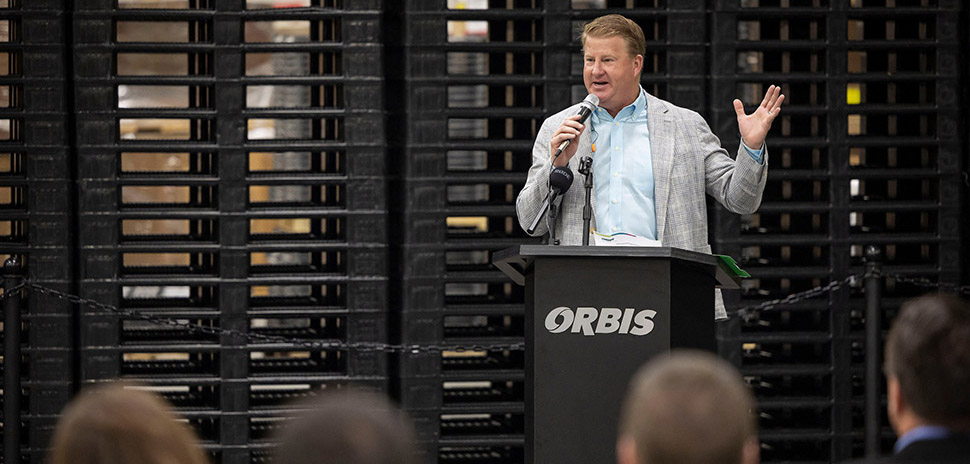 Many organizations are shifting to advanced wireless in an effort to enable innovation and gain competitive advantage. Indeed, many networking executives view these technologies as increasingly critical to their enterprise success, and business leaders are joining IT leaders to drive adoption. But what are the key drivers to adoption?
Many organizations are shifting to advanced wireless in an effort to enable innovation and gain competitive advantage. Indeed, many networking executives view these technologies as increasingly critical to their enterprise success, and business leaders are joining IT leaders to drive adoption. But what are the key drivers to adoption?
In this Q&A, we’ll dive deeper into a recent Deloitte study on these advanced wireless technologies and how adoption is unfolding. To read Deloitte’s full study, click here.
Dan Berner, North Texas managing partner, Deloitte & Touche LLP (DB): What is fueling the organizational shift from current-generation to next-generation networking technologies?
Rob FitzGerald, Technology, Media and Telecommunications leader and partner, Deloitte & Touche LLP (RF): To begin with, we can rule out some factors. Network aging isn’t driving the shift, as current wireless networks and the supporting equipment is less than three years old. Also, based on the Deloitte survey results among executive decision-makers, network metrics don’t seem to be driving the shift as a majority of decision-makers are “satisfied” or “extremely satisfied” with a range of traditional performance characteristics of their current wireless networks, including reliability and resilience, data speed, latency, coverage, location accuracy, energy efficiency, and device density.
What is driving the expected shift is that there are signs that organizations are looking beyond traditional network metrics such as reliability and coverage and are instead adopting advanced wireless technologies to hopefully unlock competitive advantage and create new avenues for innovation in their operations and offerings. What the survey stated is that the current technology is often considered to prevent them from addressing the innovative use cases they would like to target.
This strong belief in the transformative power of advanced wireless connectivity is especially impressive, considering that both 5G and Wi-Fi 6 are the latest generations of technologies that originated more than 20 years ago and have been evolving ever since.
DB: We’ve heard a lot in this market about 5G, but are some of the scenarios for advanced wireless—both 5G and Wi-Fi 6?
RF: The majority of enterprises we surveyed are targeting a blend of scenarios. While organizations currently use wireless primarily to connect employees, advanced wireless technologies can enable many new applications for machine and customer networking.
With a growing number of employees working remotely in the field and at home, enterprises often seek to use advanced wireless to improve productivity. 5G, for example, can augment opportunities to collaborate and share data through high-resolution images, videos and eventually 3D immersive (AR/VR) experiences. Plus, advanced wireless technologies can play a crucial role in connecting machines and devices—inside buildings, on campuses and in the external world—and in driving smart factory solutions.
And, in an era in which organizations across different sectors seek opportunities to engage directly with their customers, advanced wireless technologies may prove a real game-changer.
As you would expect, executives emphasize different use cases, depending on which industry they represent.
DB: Given the diversity of industries in North Texas, can you share a few top industry use cases?
RF: For technology, media and telecommunications (TMT) executives, advanced analytics tends to reign paramount, with more executives rating it a top-three use case than in other industries; it ties (with asset tracking) as the second most popular use case.
For consumer, retail and automotive, asset tracking is the most popular and pursued at a higher rate than in other industries.
And lastly, in a departure from other industries, energy, resources and industrials places its primary focus on predictive maintenance, e.g., predicting (and potentially averting) downtime of machines.
DB: What are some of the sought-after benefits and what networking characteristics are organizations seeking?
RF: Enterprises are focused on a blend of flexible usage scenarios: both indoor and outdoor, stationary and mobile. Respondents expressed some preference for using Wi-Fi 6 for indoor, fixed, on campus use cases, and 5G for outdoor, mobile and off-campus use cases. It should not be surprising then that many of these enterprises are adopting both technologies in parallel as they pursue their goals for advanced wireless.
DB: This survey was conducted pre-COVID, but given how technology and innovation was already driving a lot of businesses, what do you think the impact of COVID-19 has on the results and findings in this report?
RF: It’s fair to wonder whether the pandemic has altered their mindset toward adopting advanced wireless technologies.
Our survey respondents resoundingly view advanced wireless technologies as a key enabler of innovation. The pandemic itself may accelerate demand for novel products and services that rely on a more robust and powerful network infrastructure. Imagine how different the response to a pandemic might look at a time when next-generation wireless technologies such as 5G and Wi-Fi 6 are fully implemented, along with AI, edge computing, IoT, cloud and big data analytics.
Dan Berner is the North Texas managing partner of Deloitte & Touche LLP. Rob FitzGerald is a partner and the Dallas Technology, Media and Telecommunications practice leader, Deloitte & Touche LLP. To learn more about Deloitte’s predictions for technology, media and telecommunications in 2020, click here.
This publication contains general information only and Deloitte is not, by means of this publication, rendering accounting, business, financial, investment, legal, tax, or other professional advice or services. This publication is not a substitute for such professional advice or services, nor should it be used as a basis for any decision or action that may affect your business. Before making any decision or taking any action that may affect your business, you should consult a qualified professional advisor. Deloitte shall not be responsible for any loss sustained by any person who relies on this publication.
About Deloitte
Deloitte refers to one or more of Deloitte Touche Tohmatsu Limited, a UK private company limited by guarantee (“DTTL”), its network of member firms, and their related entities. DTTL and each of its member firms are legally separate and independent entities. DTTL (also referred to as “Deloitte Global”) does not provide services to clients. In the United States, Deloitte refers to one or more of the US member firms of DTTL, their related entities that operate using the “Deloitte” name in the United States and their respective affiliates. Certain services may not be available to attest clients under the rules and regulations of public accounting. Please see www.deloitte.com/about to learn more about our global network of member firms.
Copyright © 2020 Deloitte Development LLC. All rights reserved.
![]()
Get on the list.
Dallas Innovates, every day.
Sign up to keep your eye on what’s new and next in Dallas-Fort Worth, every day.





























